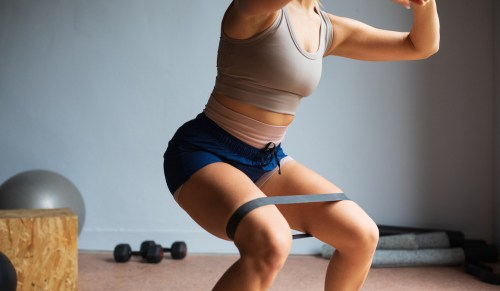If you’ve ever used a hydration-tracking app—or simply tried to take in eight or more glasses of water per day—you’re likely familiar with the feeling that enough water roughly translates to a lot. With this in mind, it’s almost unfathomable that you could accidentally drink too much of it, right?
I felt the same way, which is why I rolled my eyes when a friend told me that hyper-hydration is taxing to the body and that some people actually need to drink less water. But as it turns out, there is such a thing as overindulgence when it comes to H2O.
The resultant condition is known as hyponatremia, or “water intoxication,” and though the latter moniker makes it sound a bit sexy or fun, the reality is anything but. “Water intoxication refers to an imbalance of electrolytes following excessive water intake,” explains Ryan Seltzer, Associate Researcher at the Exercise Physiology Research Laboratory at UCLA School of Medicine. This results in “dangerously low sodium levels,” says sports nutritionist Marie Spano, MS, RD.
The effects of water intoxication range from uncomfortable to quite serious. “Chronic hyponatremia is associated with more moderate complications such as nausea, vomiting, headache, fatigue, irritability, and weakness, whereas acute hyponatremia can present as changes in level of consciousness, seizures, and intense headaches,” Seltzer says. “Extremely low levels of sodium can result in brain swelling that can progress to brain stem compression and eventual death in the most severe cases.”
“Water intoxication refers to an imbalance of electrolytes following excessive water intake.”
Before you panic (death, OMG!) it’s important to note that the risk of hyponatremia is very low for the general population. Where it might be of concern to you is if you’re an endurance athlete. “Exercise-associated hyponatremia is most often, though not exclusively, correlated with long-duration, high-intensity exercises such as marathons, ultramarathons, and triathlons,” says Seltzer. Spano adds that it’s been particularly observed in those with slower race times.
To keep tabs on your intake as you engage in endurance activities, Spano provides a simple technique. Before exercise, she advises, weigh yourself in minimal clothing after going to the bathroom. Then, weigh yourself immediately after exercise, in minimal clothing with the sweat wiped off, noting exactly how much water you drank. “You don’t want to weigh more after exercise,” Spano says. (If you do, it’s a good sign that you should dial back on your water intake during your next workout.) For those concerned with more exact measures, she suggests visiting a sports dietician for a sweat test.
As marathon season approaches, this is helpful information to have at hand for a small subset of people. However, it’s still more likely that you’re not getting enough water. “Drink half your weight in ounces per day,” says Donna Cryer, president and CEO of the Global Liver Institute. “So if you weigh 120 pounds, drink about 60 ounces, and more if you exercise, are pregnant, or are in the heat.” (S’well) bottoms up.
Wanna know some other surprising thing you can actually overdo it on? Kale,kombucha,fiber,“good” cholesterol,and even cardio. These keto brownies, however? Never. (Wink, wink.)
Sign Up for Our Daily Newsletter
Get all the latest in wellness, trends, food, fitness, beauty, and more delivered right to your inbox.
Got it, you've been added to our email list.











